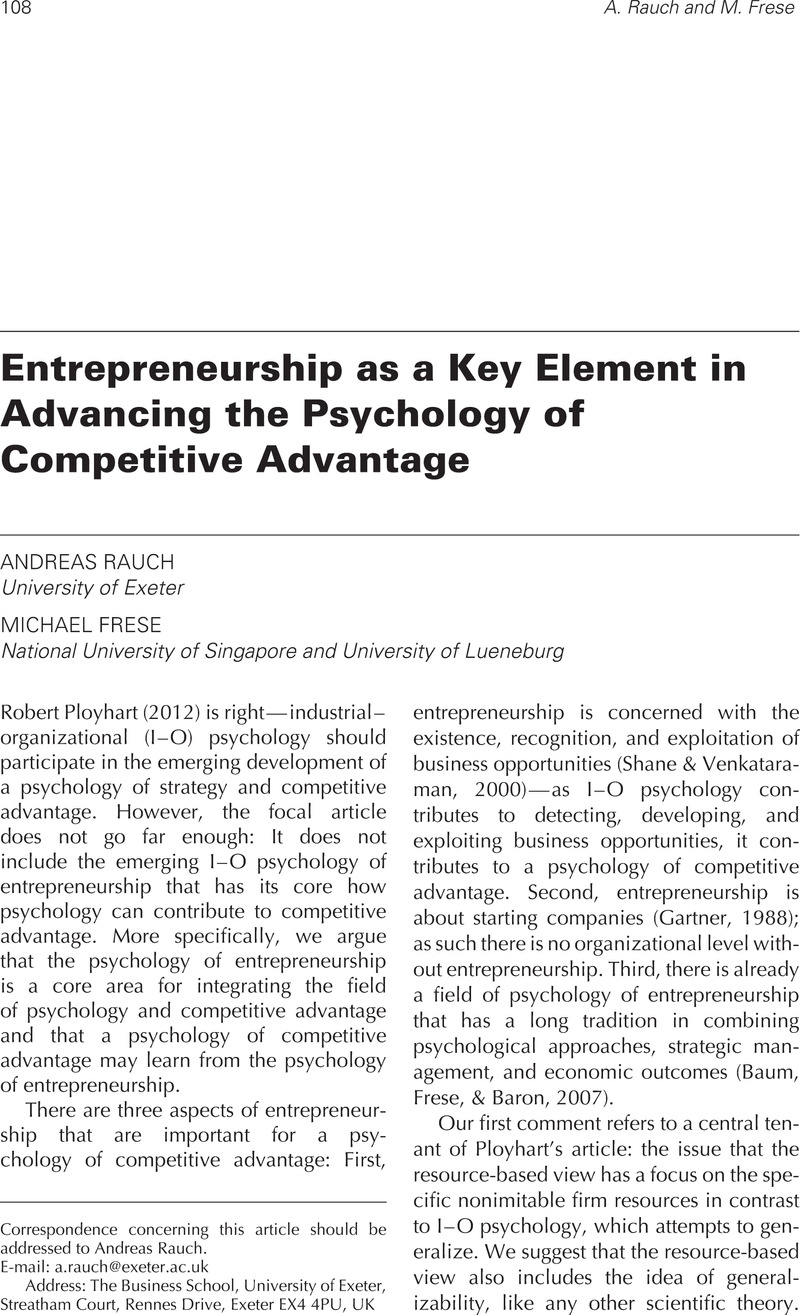Crossref Citations
This article has been cited by the following publications. This list is generated based on data provided by Crossref.
Ployhart, Robert E.
2012.
From Possible to Probable: The Psychology of Competitive Advantage.
Industrial and Organizational Psychology,
Vol. 5,
Issue. 1,
p.
120.
Yazici, Senem
Köseoglu, Mehmet Ali
and
Okumus, Fevzi
2016.
Identification of growth factors for small firms: evidence from hotel companies on an island.
Journal of Organizational Change Management,
Vol. 29,
Issue. 6,
p.
994.
Ceresia, Francesco
and
Mendola, Claudio
2020.
Am I an Entrepreneur? Entrepreneurial Self-Identity as an Antecedent of Entrepreneurial Intention.
Administrative Sciences,
Vol. 10,
Issue. 3,
p.
46.





